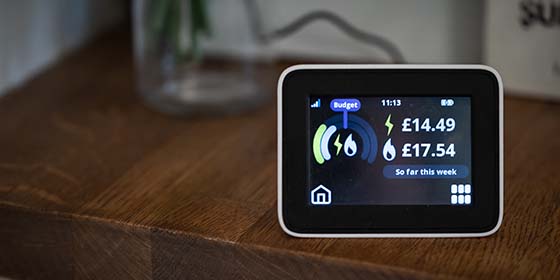Progress on rolling out smart energy meters remains too slow, and the Government has not done enough to convince the public of their benefits. In a report published today, the Public Accounts Committee (PAC) warns that not enough has been done to ensure that the rollout, which has failed to meet its original targets and repeatedly shifted its deadlines for completion, has the support of the public.
Though Government considers there is demand for smart meters from people that do not yet have one, the PAC’s report found that those consumers with traditional meters are less interested in having a smart meter. Reports of bad practice last winter of forced switching of consumers onto smart meters may have put people off from having one installed.
The inquiry also heard that energy suppliers under pressure from Government-imposed smart meter targets can put pressure on consumers, who can feel threatened by contacts and correspondence from suppliers into having one installed. Given that only 57% of all meters in Great Britain were smart at March 2023, over a decade after the rollout began, the PAC is calling for a strategy review to drive demand for the programme.
As well as the fact that around 3 million (9%) of smart meters were not working properly at March 2023, the report highlights concerns about built-in obsolescence in those smart meters already installed. Components for an estimated seven million smart meters (out of around 32.4 million installed at March 2023) will need to be replaced because they will lose functionality when the 2G and 3G mobile communications networks are closed. Billpayers will ultimately bear the likely significant costs of these required upgrades.
The report finds that consumers who are older, male, on high incomes, or homeowners are more likely to have smart meters, raising concerns that certain, often wealthier, consumers are disproportionately benefitted by smart meters. The PAC calls on the Government to update its evidence (some of which dates as far back as 2015) on whether smart meters are actually saving consumers money as it anticipated. The Government should also improve its limited understanding of why smart meter coverage is lower in some areas – particularly London, rural and remote areas – compared to others.
Dame Meg Hillier MP, Chair of the Committee, said:
“The rollout of smart meters was first conceived in 2008, with a planned completion date of 2019. Some 15 years later and four years after that missed target, and its vision of access and support for every household to control their energy efficiency remains a distant one. There are functionality issues with many, millions will have to be replaced when they become obsolete, and the evidence is unclear whether their benefits are even working as advertised.
“On top of this, smart meters have serious reputational obstacles to overcome with the public. In particular, our inquiry has found that consumers’ enthusiasm for adopting one has been understandably harmed by recent shocking reports of forced installations. The Government must now get onto the front foot and explain how it is going to sell this troubled programme to the public – and how it will successfully deliver during a cost of living crisis for those it ought to benefit the most.”







